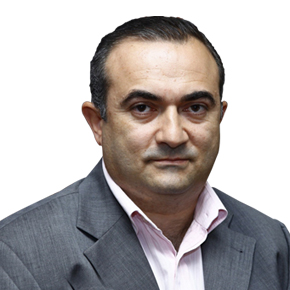On June 25 the Presidents of Armenia and Azerbaijan will meet in Kazan under the auspices of President Medvedev. Some think that this in fact is going to be a meeting where the future of the Minsk Group will be at stake, rather than the Karabakh issue will be discussed. I will attempt to analyze this opinion, suggesting what I think is the symbolism of the place and time chosen for the June meeting.
Symbolism of place:
Kazan is the capital of Tatarstan, one of the federal subjects of the Russian Federation, which has quite an interesting background. On the eve of the collapse of the Soviet Union, the Soviet leadership mentioned a few times that the Karabakh issue was pregnant with a grave danger: it would trigger cessation movements in some similar situations, and Tatarstan was mentioned in line with Chechnya among the entities that would vie for independence. However, it was then that Boris Yeltsin made his famous statement that in general meant the following: please take as much sovereignty as you are able to utilize. Tatarstan seemed to follow this political advice in its own way: it is one of the subjects that as of today has very high level of sovereignty secured by its Constitution; however, it has never tried to exercise it fully.
Is there a symbolism about a meeting to be held in Tatarstan, a meeting that is presented as one to become crucial for the whole process of Karabakh issue? Traditionally there have been a few places in the world where peace agreements were signed and later the process has been called by the name of the city. This is what symbolism is. Thus, the current situation begs for a question: do we need the symbolism of Kazan - a sovereign entity within the territorial integrity of the Russian Federation - in reference to Nagorno Karabakh struggling for its independence?? I am certain that we have to seriously take into account the possibility that it can later be presented as something reflecting the suggestions of the Minsk Group called “Madrid Principles”.
Symbolism of time:
2012 is a significant year for the Minsk group co-chair countries, the US, Russia and France: in all three countries presidential elections will be held. All three presidents in office who will rerun for presidency will be challenged to demonstrate what they have reached on the international arena. After the Georgian war Medvedev has constantly been under some pressure to prove that he is also an able peacemaker. Obama came into power with a great credit of trust: he was trusted to make significant internal and external changes, but presently we are facing situations that can be described rather chaotic than clearly transformative. In this regard he also needs to present a success story. He needs to be able to answer the question why he has received the Nobel Peace Prize at his upcoming election campaign.
France is not an exception as well. With every other day political voices become stronger regarding the replacement of France with the EU in the Minsk Group. One may argue that this does not affect the image of France strongly. However, it certainly downgrades it, and eventually, after Libya Sarkozi will not be able to appear to the world as a successful peacemaker. In summary, May 2012 is approaching fast, and once summer is over, the election campaigns will start in all their might, and all three presidents will have to present one or the other success story.
Thus, the first symbolism directly relates to the sides of conflict: the sovereignty of Nagorno Karabakh is at stake, and it is highly unlikely that the symbolism of Kazan will be acceptable for either Nagorno Karabakh or Armenia. In this regard, all three sides can still create a situation, for instance, by intensifying the shootings on the border, or simulating killing of a civilian by Azerbaijan, where the negotiated points cannot be accepted. Thus, this meeting will eventually turn into just another one, but not a crucial one as is being expected. Secondly, the symbolism of time is closely tied to the co-chairs’ desire to reach a tangible result in this meeting. Therefore, it seems that the meeting in Kazan is held to save the institution of the Minsk Group and also to provide some base for all three Presidents to appear to the international community as peacemakers.
In reality, the Karabakh issue has a clear vision for its resolution. It is essentially an issue of status, and the Azerbaijani position can be satisfied only in case Azerbaijan again starts a war and cleanses the whole NKR territory from Armenians. Cynically they won’t care whether they kill or just deport people from their homes. Everyone understands that the situation of 1988 will never repeat again, and if Azerbaijan starts a war, they will go through till the end. Armenians most certainly will not allow such a thing and will fight to their final victory as well. Independent Karabakh is a reality and whether it will gain an intermediary status and become independent though another referendum, or just immediately be recognized as one, is a matter of time only: one way or another it will be recognized as an independent state. The rest in negotiations is just about details, what, where, how much, etc. Yes, devil is in the details and this is what the process of negotiations is going to be about, but will Kazan be about details, or will it be more about the symbolism of peacemaking will become clear on evening of June 25.
Tevan Poghosyan is the Executive Director of International Center for Human Development (ICHD). These views are his own.

















Comments
Dear visitors, You can place your opinion on the material using your Facebook account. Please, be polite and follow our simple rules: you are not allowed to make off - topic comments, place advertisements, use abusive and filthy language. The editorial staff reserves the right to moderate and delete comments in case of breach of the rules.